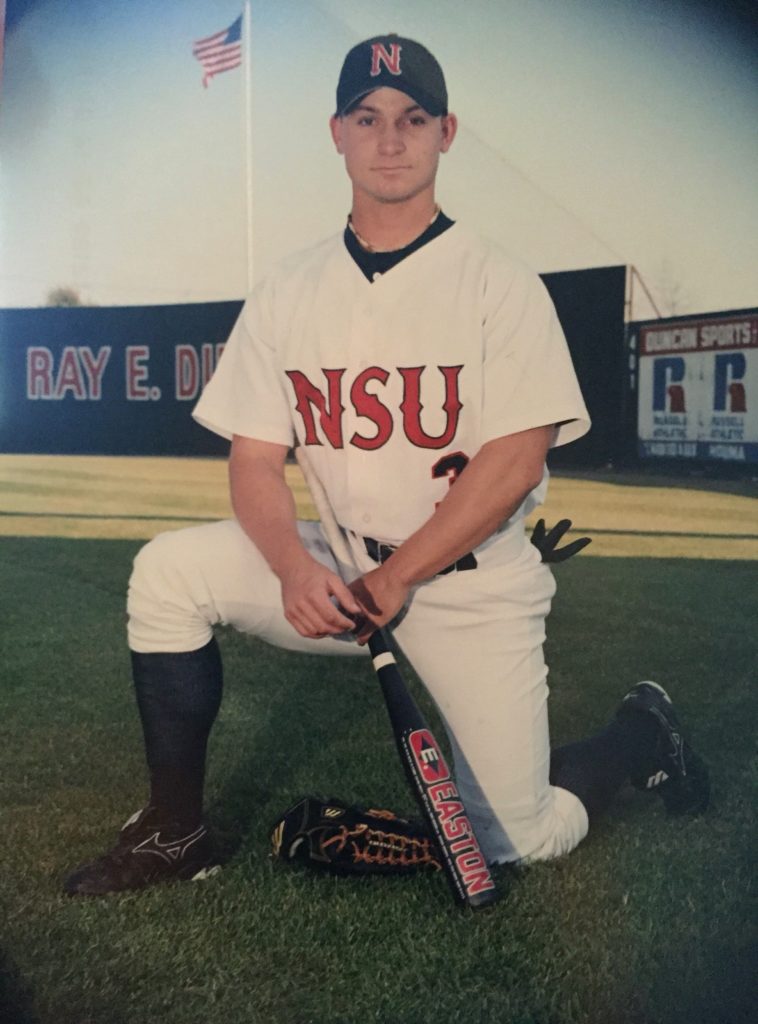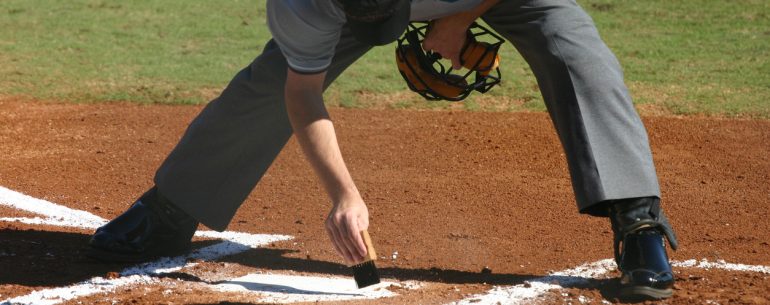My college coach once said, “Umpires are the bottom of the food chain. If you can’t play, you coach; if you can’t coach, you scout; if you can’t scout, you umpire. It’s far beneath you to argue with bottom feeders. Let me do it.”
2017 World Series Game 5 (Astros vs. Dodgers)
Game 5 of the 2017 World Series was one of the most exciting games ever played.
Jose Altuve talked about the incredible emotional highs and lows of Sunday’s game during a post-game interview. As a fan, I could relate—watching the game was like being on an emotional rollercoaster.
While it felt great to be on the winning side, I couldn’t help feeling bad for Dodger fans. My west-coast friends lit up social media with complaints about the umpires in Game 5.
Poor calls behind the plate created new proponents for an automated strike zone. If Major League Baseball starts using technology to call balls & strikes, Sunday’s 10-inning thriller may serve as the catalyst—it was the worst umpiring in a big game since Eric Gregg’s debacle in 1997.
Fighting Baseball Tradition (and Emotions)
Opponents of implementing an automated strike zone fear removing the human element umpires provide—they don’t want to relinquish yet another baseball tradition. But now that we’ve embraced instant replay, no-pitch intentional walks and replaced the old Yankee Stadium, I’m confident we’d quickly acclimate to “a strike is a strike.”
America’s capacity for eliminating jobs through automation is unbounded. The solution is always to adapt, learn new skills and find other ways to provide value. Umpires could focus on plays at the plate, balks and whether or not a hitter “checks” his swing.
A home plate umpire could assist in strike-zone adjustments. For example, changes would be needed when Aaron Judge is hitting vs. Jose Altuve. If technology is implemented now it’d be fine-tuned before more little guys enter MLB—I literally love Altuve as a pioneer.
A hitter shouldn’t have to play against ten guys when hitting—nine is enough.
The Dodgers players’ ability to control their emotions during at-bats on Sunday was impressive. They understood the magnitude of the game and could hardly risk ejection for arguing balls and strikes. Their discipline had me reflecting on my own playing days.
The Time I was Ejected
For almost four years, I took my coach’s directive not to argue with umpires. But there was this one time…
We were playing Tulane in New Orleans. They were a Top-10 nationally-ranked team. Down 4-3 in a late inning, I came to bat with the bases loaded.
Since I hit left-handed, they brought in a hard-throwing lefty to face me. I felt respected and got amp’d up.
The first-pitch fastball was thigh-high on the inner-third of the plate, and I put my best swing on it. Thanks largely to the velocity the pitcher provided, the ball jumped off my bat down the right field line, sailing far out of Turchin Stadium.
The first base umpire ran toward the ball as it left the park so he could get a good look. After watching it fly over the foul pole, he twirled his finger around to signal my first collegiate grand slam, which would give us a 7-4 lead.
Now the whole team was amp’d. I ran around the bases, my teammates were high-fiving and helmet-slapping.
As I put my helmet up, I looked to see what my teammates were looking at. Tulane Head Coach Rick Jones was chatting with home plate umpire, Eddie Newsome (of course I remember his name).
A minute later, “Blue” looked up at the press box to signal for the scoreboard to be changed back to 4-3. It seemed like a cruel joke. My coach went out to argue and was promptly ejected. We were livid, all of us.
I was told to go back to the plate with a 0-1 count. Base-runners were sent to the bases they’d occupied before our celebrations.
It was strange—a situation you can’t believe is happening as it’s happening.
What was really odd is that when I “dug-in” at the plate, I felt a confidence like I’d never felt before. I was certain that if the pitcher threw the ball anywhere near the plate, I was going to hit the ball out of the park again. It’s a supreme confidence I’ve felt at the plate only that one time in my life—not something I could self-generate.

The next pitch hit me square in the arm, up near the shoulder. On any other day, it would’ve hurt. But I had too much adrenaline to feel anything. Game tied 4-4.
Well, not exactly. “Blue” wouldn’t grant me first base. He said I didn’t make sufficient effort to avoid being hit. Incredulous, I felt like there was some kind of conspiracy against us; against me.
Since a police officer had escorted my coach off the field the pitch before, there was nobody coming to argue. So I got in the umpire’s grill myself. I’m not even sure what I said, but it was laced with profanities.
Tulane always drew a large crowd, and “Blue” was putting on a show. In the midst of our argument, he dramatically fell back like we were in the WWE. He acted like I’d just headbutted him—dude was showboating—it was weird.
As he was hunched over, I looked down at him then glanced up at the crowd. This only added to the WrestleMania feel of it all.
Needless to say, I was thrown out of the game. We lost by a final score of 4-3, which preserved Tulane’s 19-game home winning streak.
The umpire later told our hitting coach that I was ejected because I “beaked” him (the beak of my helmet barely touched his forehead while we were arguing).
Final Word on Umpires
I’m no longer bitter about the Tulane game, but if anyone knows “Blue” in this story, tell him to GFH.
There are way too many “look at me” umpires with a tendency to showboat and show love to home teams.
As Astros fans, we were the beneficiaries of home-cooking on Sunday night, but you can bet we’ll be on the other end someday—let’s hope it’s not Game 6 or 7.
I’m ready to eject umpires. Who’s with me?
Go ‘Stros!



